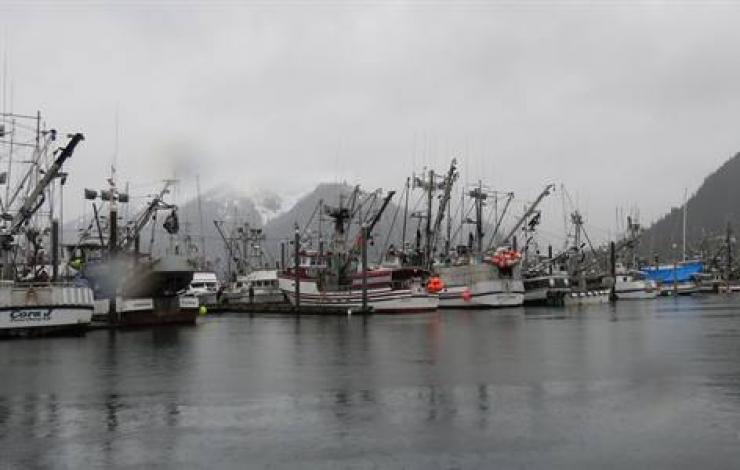A new study led by PMEL's Dr. Jeremy Mathis, published online July 29 in Progress in Oceanography, shows that many of Alaska's economically valuable marine fisheries are located in waters already experiencing ocean acidification. The economy and livelihood of communities in southeast and southwest Alaska are expected to be particularly vulnerable to ocean acidification and have underlying factors making these communities more susceptible. Studies show that red king crab and tanner crab, two important Alaskan fisheries, grow more slowly and don’t survive as well in more acidic waters. Alaska’s coastal waters are particularly vulnerable to ocean acidification because of cold water that can absorb more carbon dioxide, and unique ocean circulation patterns which bring naturally acidic deep ocean waters to the surface.
Read more on the NOAA press release and visit PMEL's ocean acidification research page.



